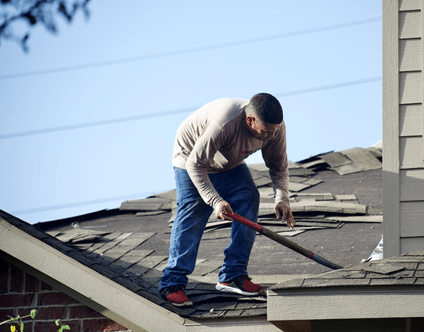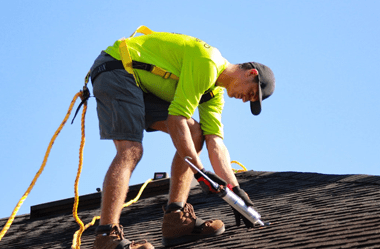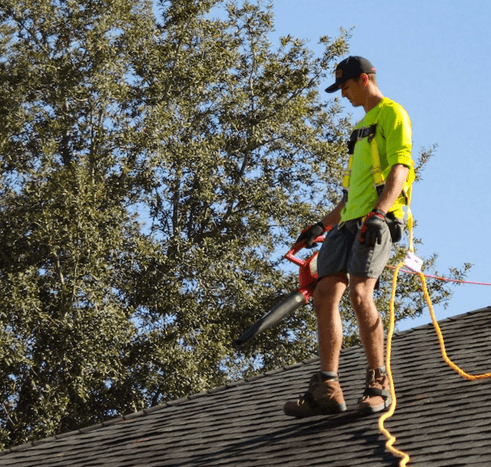When it comes to maintaining a home, few tasks are as vital as ensuring your roof is in good condition. Roof replacement can be a significant investment, requiring careful consideration of various factors and a solid understanding of the costs involved. In this article, we will explore key aspects of roof replacement costs in Pennsylvania, helping you make an informed decision when faced with this essential home maintenance project. Keep reading to learn more.
Factors Influencing Roof Replacement Costs
Roof replacement costs can be affected by numerous factors, making it essential for homeowners to have a clear understanding of these variables. The size and complexity of the roof, material type, labor costs, and even location can significantly impact the overall cost of a roof replacement project. By familiarizing yourself with these factors, you can approach your roofing project with a realistic expectation of the associated costs.
Additionally, various elements such as the slope of your roof, and additional features like chimneys, skylights, and ventilation systems can also influence the total cost. These components often require customized solutions during a roof replacement, thus raising the cost of your project. Further, permits or inspections required by local authorities can incur additional expenses, contributing to the overall costs. You can search online for “roof replacement cost Pennsylvania” to get a more accurate cost estimate.
Materials and Their Costs
Roofing materials strongly influence the final cost of a roof replacement project. Popular materials such as asphalt shingles, wood shakes, metal, and slate each come with distinct price points. Asphalt shingles, for instance, are more affordable and easier to install, making them one of the most widely-used materials in the United States. In contrast, materials such as slate and metal tend to be more expensive but offer increased durability and a unique aesthetic.
As you explore roofing material options, consider factors like your home’s architectural style, your local climate, and potential maintenance requirements. Each material has pros and cons, and carefully weighing these factors will help you arrive at the best decision for your specific needs.
Remember that prices for materials can vary based on the manufacturer, quality, and any special features, such as energy efficiency or impact resistance. Always compare price and quality, opting for a material that best suits your budget and requirements.
Labor and Its Impact on Costs
Another significant component of roofing costs is labor. The overall expense of labor can be affected by factors such as the complexity of your roof, local labor rates, and any special requirements unique to your project. In addition, experienced and reputable contractors tend to charge higher rates, reflecting their skills and the quality of their work. It’s important to balance budget concerns with the value of hiring an experienced and reliable contractor, ensuring a successful and long-lasting roof.
When receiving quotes from contractors, request a detailed breakdown of labor costs and estimated project duration. A reputable contractor should provide this information transparently, helping you make an informed decision. You also want to check for additional fees, such as charges for removing old roofing materials or installing ventilation.
Request multiple quotes to compare pricing and services. Avoid choosing a contractor solely based on the lowest bid. In some cases, unusually low bids might indicate a lack of experience or an unwillingness to provide services such as permits and inspections.
Preparing Your Budget
Budgeting for a roof is an important aspect of any home maintenance project. Once you have researched the factors impacting costs, materials, and labor, it’s time to establish a realistic budget for your roofing project. Determine your needs and priorities and consider what aspects of the project you are willing to compromise on to meet your budget constraints.
Ensure your budget includes contingencies for any unexpected expenses that may arise during the project. This could include repairs for damaged roof decking discovered during the replacement process or additional labor costs incurred due to unexpected complications. Creating a buffer in your budget will help you avoid any unwelcome financial surprises during your roof replacement project.
Consider any financing options available to help manage the costs of your roof replacement. Many lenders and contractors offer loans, payment plans, or credit options to qualified applicants. Explore these possibilities and select the best option for your financial situation.
The Importance of Inspections
Before beginning a roof replacement project, you’ll want to obtain a thorough inspection and estimate from a reputable contractor. An inspection allows the contractor to assess the condition of your existing roof and identify any underlying issues that may impact the project. This information is crucial for establishing an accurate cost estimate for your roof replacement. An experienced contractor should provide you with a detailed written estimate outlining the scope of work, materials to be used, labor costs, and any additional fees.
Quality vs. Price
When considering your roof replacement, it can be tempting to prioritize the lowest price. However, an inferior-quality roofing job may lead to costly problems down the road, negating any initial savings. Invest in a high-quality, durable roofing system that will protect your home for years.
Research contractors’ reputations through references and online reviews. Select a contractor known for their quality of work, customer satisfaction, and attention to detail. While this may mean a higher upfront cost, the long-term savings and peace of mind will be well worth the investment.
Maintaining Your New Roof
Once your new roof has been installed, it’s essential to maintain it properly to ensure it remains in good condition and performs optimally. Regular inspections, gutter cleaning, and addressing any minor issues immediately will help prolong the life of your roof and prevent costly repairs in the future.
Consider periodic maintenance by a professional roofing contractor, who can detect any potential issues early and recommend appropriate repairs. Consult your contractor to determine the best maintenance schedule for your specific roofing material and local climate conditions.
Lastly, maintain open communication with your contractor regarding any concerns or questions you may have. A knowledgeable roofing professional will be happy to share tips and advice on preserving the integrity of your newly-installed roof.
Understanding Warranty Options
Roof replacement projects often come with warranties that cover the materials and workmanship involved. Familiarize yourself with the terms of these warranties so you can make the most informed decision regarding your investment. The two main types of warranties to consider are manufacturer warranties and contractor workmanship warranties.
Manufacturer warranties typically cover issues related to defects in roofing materials. If a problem arises due to a manufacturing defect, the manufacturer will either replace the affected materials or reimburse you for the cost of replacement, according to the terms of the warranty. When selecting your roofing materials, compare warranty terms and ensure you understand the coverage provided.
Contractor workmanship warranties cover issues resulting from errors in the installation process. A reputable contractor will stand by their work and provide a comprehensive warranty for your peace of mind. If problems arise due to installation errors, your contractor should remedy the issue at no cost to you. Ensure your contractor’s warranty is included in your written contract before beginning the roof replacement project.
Understanding the various factors that influence roofing costs, from materials to labor expenses, is crucial to making informed decisions about your project. By accounting for these factors and carefully balancing quality with price, you can ensure a successful, long-lasting roof that serves your home well.



